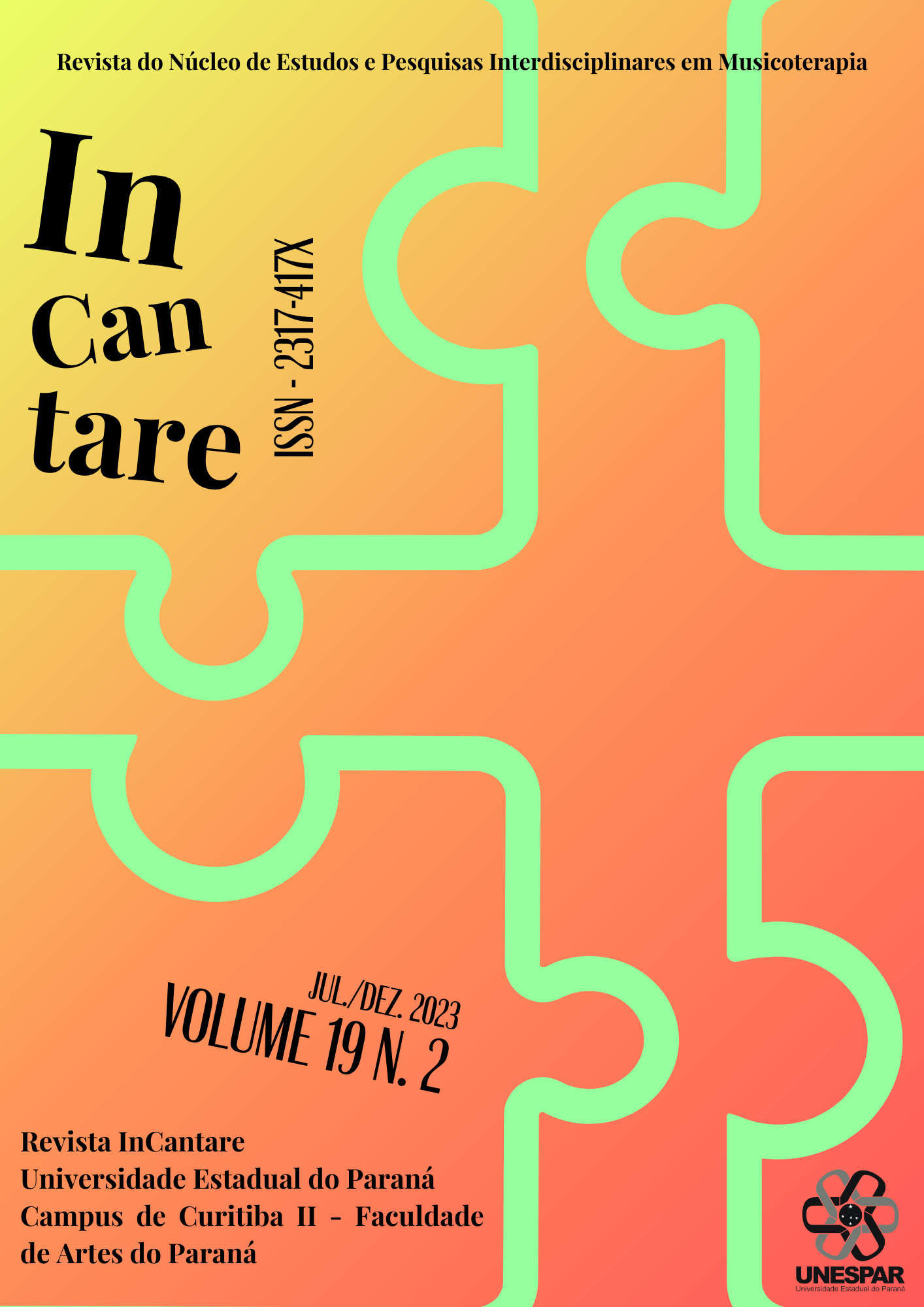A música como recurso pedagógico para o desenvolvimento do potencial cognitivo e linguístico em crianças com a trissomia do cromossomo 21
DOI:
https://doi.org/10.33871/2317417X.2023.19.2.8934Palavras-chave:
Selecionado:Trissomia do cromossomo 21, Música, Inteligibilidade de falaResumo
Estudos apontam que o desenvolvimento cognitivo da criança com a Trissomia do Cromossomo 21 (T21) é superior ao desenvolvimento da linguagem, sendo a compreensão mais efetiva do que a expressão (Chapman, 1997; Dykens, Hodapp, & Evans, 1994; Kernan & Sabsay, 1996; Miller, 1995). Os acometimentos motores orais, como a hipotonicidade, comuns a esses falantes contribuem para a ininteligibilidade da fala, assim, como os déficits de memória de curto-prazo e processamento auditivo (ANDRADE; LIMONGI, 2007; SCHWARTZMAN, 1999). Esses indivíduos necessitam, portanto, serem motivados a desenvolverem a linguagem verbal de forma que a interação com o outro e com o meio ocorra de forma mais efetiva. Os estímulos auditivos são essenciais para o desenvolvimento da linguagem, é por meio dela que a criança entra em contato com o mundo sonoro, desenvolvendo sua comunicação oral e afetiva. Este trabalho propõe, a partir de algumas pesquisas realizadas no Núcleo Saber Down – situado na UESB, bem como pesquisas sobre a importância da música como ferramenta para o desenvolvimento intelectual, afetivo e cognitivo do ser humano, defender a proposta da música como ferramenta para a ampliação das conexões neurais de pessoas com T21, bem como para a construção de um ambiente propicio a aprendizagem e ao desenvolvimento de habilidades sociais, comunicativas, afetivas e de linguagem entre esses aprendizes. Sugere-se que as famílias e a escola sejam orientadas e motivadas a adotarem a música como promotora do desenvolvimento intelectual e afetivo desses falantes.
Palavras chave: Trissomia do cromossomo 21. Música. Inteligibilidade de fala
Downloads
Downloads
Publicado
Como Citar
Edição
Seção
Licença
Copyright (c) 2024 Priscila de Jesus Ribeiro, Marian dos Santos Oliveira

Este trabalho está licenciado sob uma licença Creative Commons Attribution 4.0 International License.
A Revista InCantare adota acesso aberto e o copyright dos artigos e da entrevista pertence aos respectivos autores/entrevistados com cessão de direitos para a Revista InCantare no que diz respeito à inclusão do material publicado (revisado por pares/postprint) em sistemas/ferramentas de indexação, agregadores ou curadores de conteúdo.
Os artigos publicados por esta Revista são de livre uso para compartilhar. É preciso dar o crédito apropriado, prover um link para a licença e indicar se mudanças foram realizadas.
A Revista InCantare não cobra qualquer tipo de taxa para submissão e/ou publicação de artigos.

















